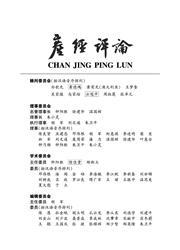

 中文摘要:
中文摘要:
消费者信息的获得与披露影响厂商的定价行为和消费者的福利,因而应引起社会和政策制定部门的广泛关注。采用寡头竞争模型分析发现,当厂商相互分享消费者的信息时加剧第二期价格竞争,缓和了第一期定价竞争,厂商获得更多利润,但消费者却享有较小的剩余。在单个厂商获得竞争对手消费者的信息时,博弈存在非对称均衡,获得信息的厂商第一期定价更具侵略性,且获得更大利润。当没有厂商提供信息时,博弈存在两个非对称均衡,在均衡中获得更多第一期市场份额的厂商获得更多利润。当厂商进行是否分享消费者信息博弈时,存在两个均衡:相互分享信息和两者都不提供信息。前一个均衡帕累托占优后一个均衡。考察不同均衡的社会福利问题发现,禁止厂商披露消费者信息提高了消费者福利。
 英文摘要:
英文摘要:
Obtaining and disclosure of consumer information affect the firm's pricing behavior and consumer benefits,thus cause the extensive concern of society and the policy-making departments. This paper analyzes the competition effects of information disclosure in differentiated products oligopoly. When firms share consumer information,which intensifies pricing competition in the second period,softens pricing competition in the first period,firms get more profits,but consumers obtain more less surplus. When only one firm supplies consumer information,the game exists an asymmetric equilibrium,firms make more aggressive pricing,gain more profits. When no firms supplies consumer information,the game exists two asymmetric equilibriums. The firm that makes more market share in the first period obtains more profits. When firms decide to whether or not share consumer information,there exist two equilibriums,one is that two firms all supply consumer information,another is that no firms supply. The former equilibrium pareto dominants another. The paper also examines social welfare in different equilibrium,find that prohibiting firms supplying consumer information that improves consumer welfare.
 同期刊论文项目
同期刊论文项目
 同项目期刊论文
同项目期刊论文
 期刊信息
期刊信息
